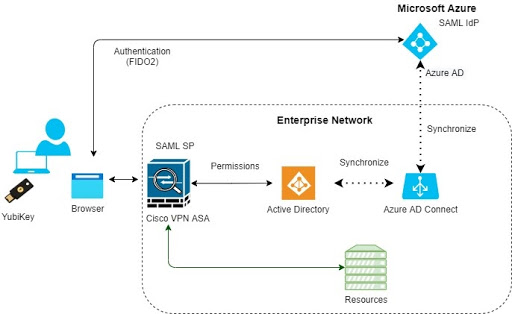

Installation of the NPS Extension is straight forward…

This could be ADFS, RDS, Citrix or any other (custom) application. The same applies for the web applications. Once both authentication methods are approved, the user will be logged on. The VPN device uses the on-premise NPS server(s) to authenticate the user, which authenticates to the local AD, and from there on to the Azure MFA cloud service which sends the 2nd authentication message to the user. First one is a user working from home and connects with his VPN Client to the VPN device (Example: Cisco Any Connect with Cisco ASA VPN) using a IPSEC VPN. How does it look like in a simple overview? As shown in the picture below, we have 2 scenario’s. – NPS Extension for Azure MFA (Download link: ) – Azure AD Premium or EM+S license must be assigned to the user – Users must be synchronized between local Active directory and Azure Active Directory

– Server 2016/2019 hosting NPS services which performs Radius authentication. Microsoft is going to leave the MFA server behind in the near future (security updates will remain being published for now).īesides the NPS extension and the MFA on-premise server the best practice is to run MFA from the Azure cloud where possible. Where you would install MFA server in the past, there is a new extension. Within Azure there are multiple ways to setup MFA.


 0 kommentar(er)
0 kommentar(er)
